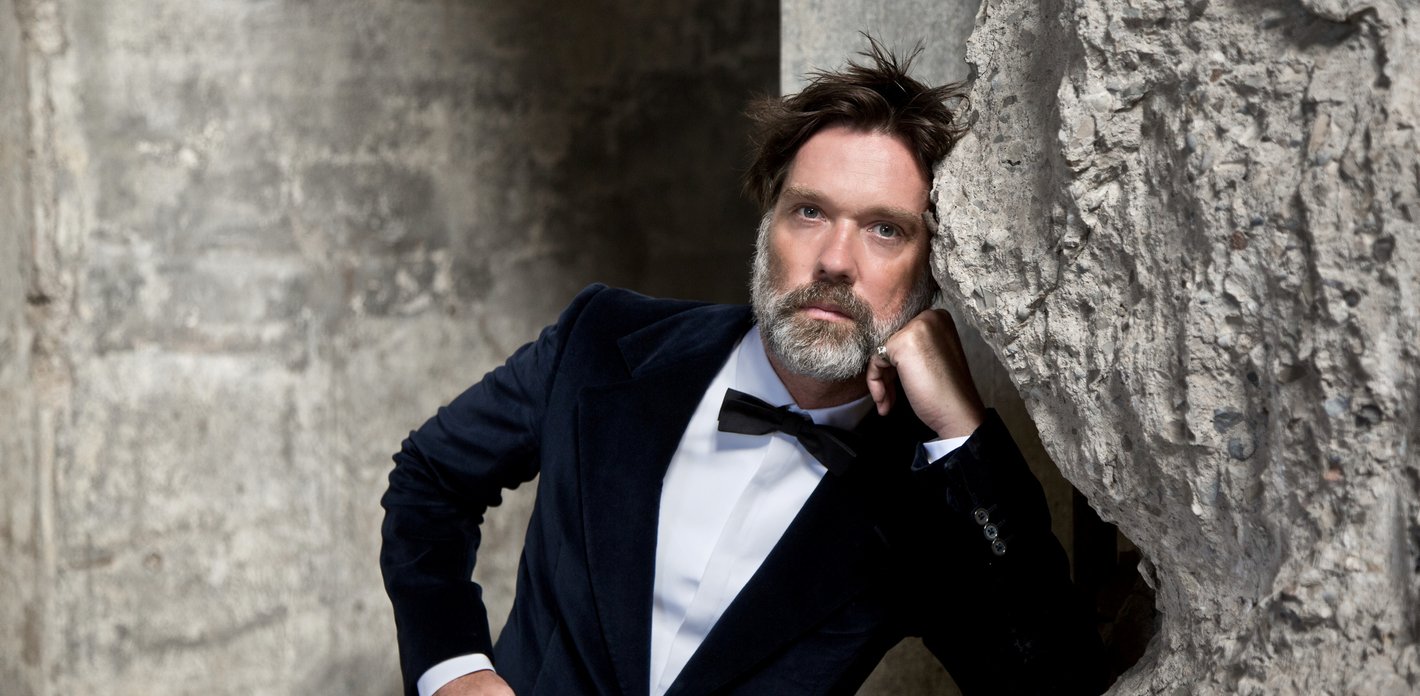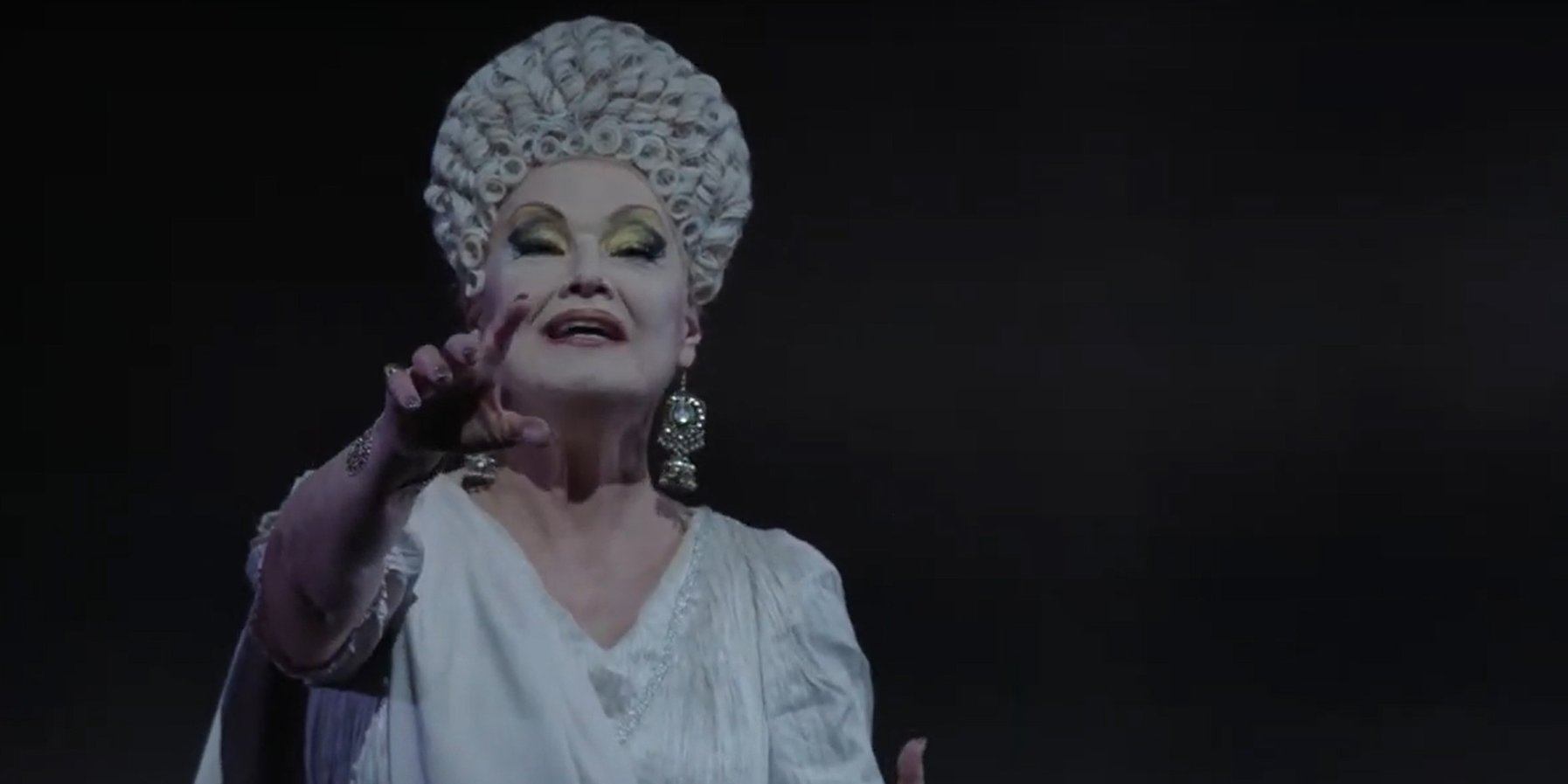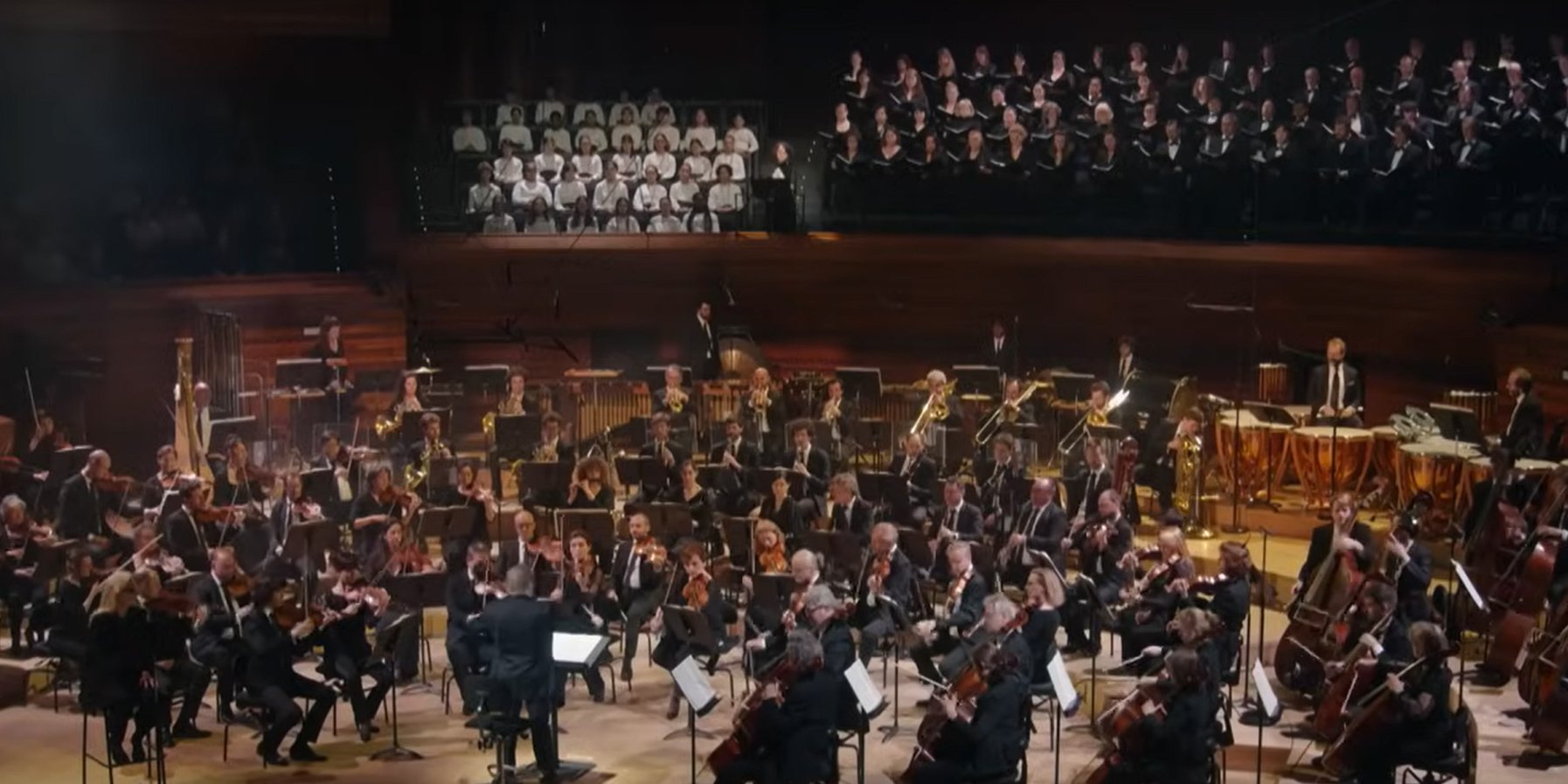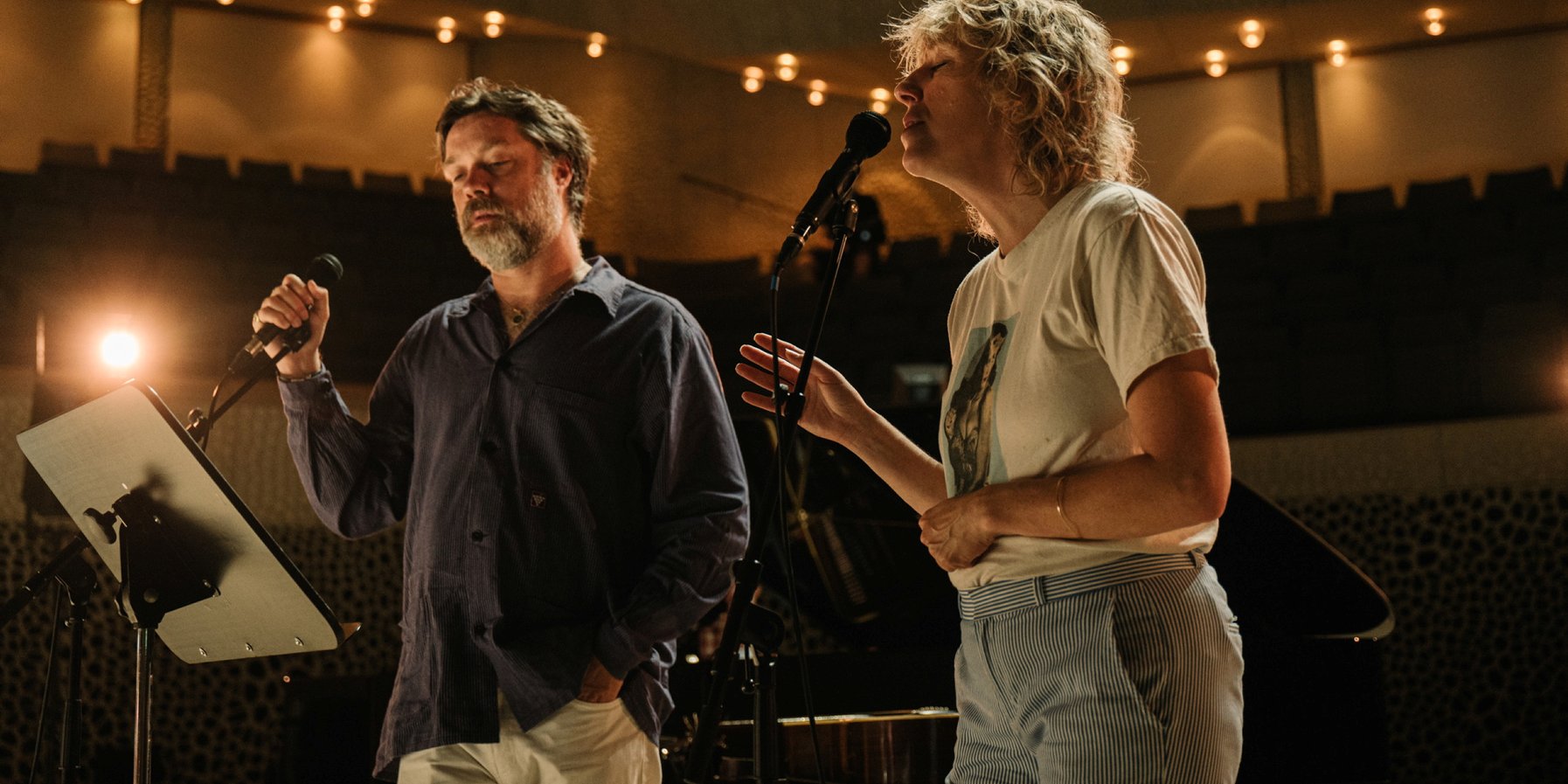Interview: Bjørn Woll, July 2025
Translation: Robert William Smales
There is no pigeonholing this man. Born in New York State in 1973 and raised in Montreal, he holds both American and Canadian citizenship. His 2023 album »Folkocracy« marked a return to his roots, evoking memories of childhood summers spent at festivals with his famous parents, the folk stars Loudon Wainwright III and Kate McGarrigle. Primarily known himself as a singer-songwriter of pop music, Wainwright is equally adept at grand, theatrical gestures and quiet intimacy – all carried by his signature voice, soft yet rugged all at once. His music has featured in a string of films including »Brokeback Mountain«, »Moulin Rouge« and »Shrek«, and his compositions are known for their refined sophistication. He is eccentric, a queer icon and politically active; in the USA, he has campaigned for the legalisation of same-sex marriage. He became a father to a daughter in 2011 and has been married to the German theatre producer and curator Jörn Weisbrodt since 2012.
Even as a teenager, Wainwright was fascinated by Verdi – it was the beginning of a lifelong passion for opera. He has since made a name for himself as a classical composer, writing two operas — »Prima Donna« (2009, Manchester) and »Hadrian« (2018, Toronto), and setting a series of Shakespeare sonnets to music for director Robert Wilson (2009, Berlin). In 2024, he expanded his classical catalogue with »Dream Requiem«, a large-scale composition that pairs the Latin Requiem Mass with Lord Byron’s apocalyptic 1816 poem »Darkness«. Following its premiere in Paris, this colossal work for orchestra, choir, soprano and narrator receives its German premiere at the Elbphilharmonie in August 2025.
Interview
Where does your strong affiliation with classical music come from?
I didn’t grow up surrounded by classical music; my parents were folk singers. My mother occasionally listened to artists like Glenn Gould, Martha Argerich and Luciano Pavarotti, but she wasn’t really a classical music enthusiast. Then, when I was 13, I heard a recording of Verdi’s Requiem with Leontyne Price and Jussi Björling – and suddenly I had this hunger for classical music, especially opera.
But you never wanted to become a classical musician?
At the time, I was more interested in writing songs and wanted to experience my youth in a more decadent way, let’s say. Still, opera quietly made its way into my songwriting like a secret ingredient: some of my songs have a dramatic arc similar to that of an aria. That was unusual and helped me to be seen as an artist.
With »Prima Donna« you then crossed over to the other side after all ...
... because I felt that I wanted to give something back to opera. It’s a rather simple work and has a certain naivety, but I like it very much. I wasn’t trying to reinvent the wheel; I needed to learn how to write for an orchestra first. The Shakespeare sonnets were a different calibre: when you’re dealing with Shakespeare, you inevitably have to step up a gear. I was unhappy with the orchestration to begin with, so I brought in an orchestrator to help. That experience with the sonnets proved essential for my next opera, Hadrian, where I had to create a soundscape for the entire Roman Empire.
Plotina’s Arie from »Hadrian«
How did the work on »Dream Requiem« go, which has an even larger ensemble?
I finally felt confident as a composer because I had enough experience working with orchestras to be able to express my musical ideas effectively. However, working with a choir was new territory. I only really learned how to write for voices properly while composing the Requiem.
Was it a conscious decision to become a classical composer, or did it just happen?
As I said, the influence of classical music has always been there in my music. But I don’t consider myself a classical composer per se. Or am I one after all? I don’t know ... I mean, I could say that I am one – although that still makes me a little nervous; I’m quite modest in that respect, believe it or not. But the truth is, I get frequent requests for operas, orchestral works and ballets. So there is a demand. I guess that makes me a classical composer. Oh God!
In Germany, there is often a great deal of scepticism when artists cross the boundaries between classical and pop music, or between so-called high-brow and low-brow music. What’s been your experience of this?
I’m aware of that. But I don’t pretend to be the new Bach or Beethoven. My name doesn’t even start with a B (laughs). One of my most formative experiences came from listening obsessively to Brigitte Fassbaender’s interpretation of »Winterreise«. She once said that there are moments in Schubert’s music that are more moving than an entire five-hour opera. If I can achieve that in my works, if I can really touch people for a moment or two instead of overwhelming them with my intellectual abilities and technical skills, then I’ve done my job.
Does it feel different to write pop music versus classical music?
Writing a song is very intimate. You try to capture your innermost feelings. When you compose a classical piece, an opera for example, you have to think more about what is best for the work. You have to take yourself out of the equation a little bit. Having said that, there are actually two moments in the Requiem that are strongly influenced by my pop music: I wrote the »Agnus Dei« years ago for a pop album. And the »Sanctus« was also originally a pop song that I didn’t know what to do with for a long time. So maybe there’s a stronger connection than I’d like to believe.
»Elbphilharmonie Session« with Rufus and Martha Wainwright
Rufus and Martha Wainwright sing the song »Your Mother and I«, written by their father Loudon Wainwright III. One take, recorded live during the sound check before their concert in the Elbphilharmonie Grand Hall.
One major difference between a pop song and an opera is the length. Isn’t that daunting for you?
I’m not afraid of it because I compose instinctively, regardless of the genre. I’m in a kind of trance, which is how I best figure out how to keep the ship afloat. It has nothing to do with intellect. Sure, I’ve learned a lot, and it’s all in my head. But when I’m actually writing, it’s a very animalistic process. So the long form doesn’t worry me that much. In fact, I often find it harder to keep my pop songs from getting too long!
Do you need a particular environment to enter into this trance?
The place I am in is particularly important for me. For »Hadrian«, I travelled to Rome especially to compose parts of the opera there. The Requiem was written in Los Angeles. I have a friend who owns this crazy villa in the Hollywood Hills, a bit like something out of »Sunset Boulevard«. I sat there with a view of the Hollywood sign while sandstorms and fires raged around me. It was originally the estate of a silent film star, then later became a Catholic girls’ school. So there was a lot of Catholic iconography, images of the Virgin Mary or martyrs being tortured. The natural disaster outside and the images of saints inside had a strong impact on my work.
What is »Dream Requiem« about?
I started writing it during Donald Trump’s first term in office and in the early stages of the Covid pandemic. There were also those devastating fires in Los Angeles. All of that left its mark; the work became more intense and darker. Shortly after the premiere in Paris, Trump was re-elected president. »Dream Requiem« became something akin to the death of the American dream. It’s like a cry for help in the midst of this ecological and political maelstrom we find ourselves in right now.
Nevertheless, there are moments of beauty in the music.
But it’s a fleeting beauty, a bit like the music of Gustav Mahler before the First World War, a kind of premonition of the end.
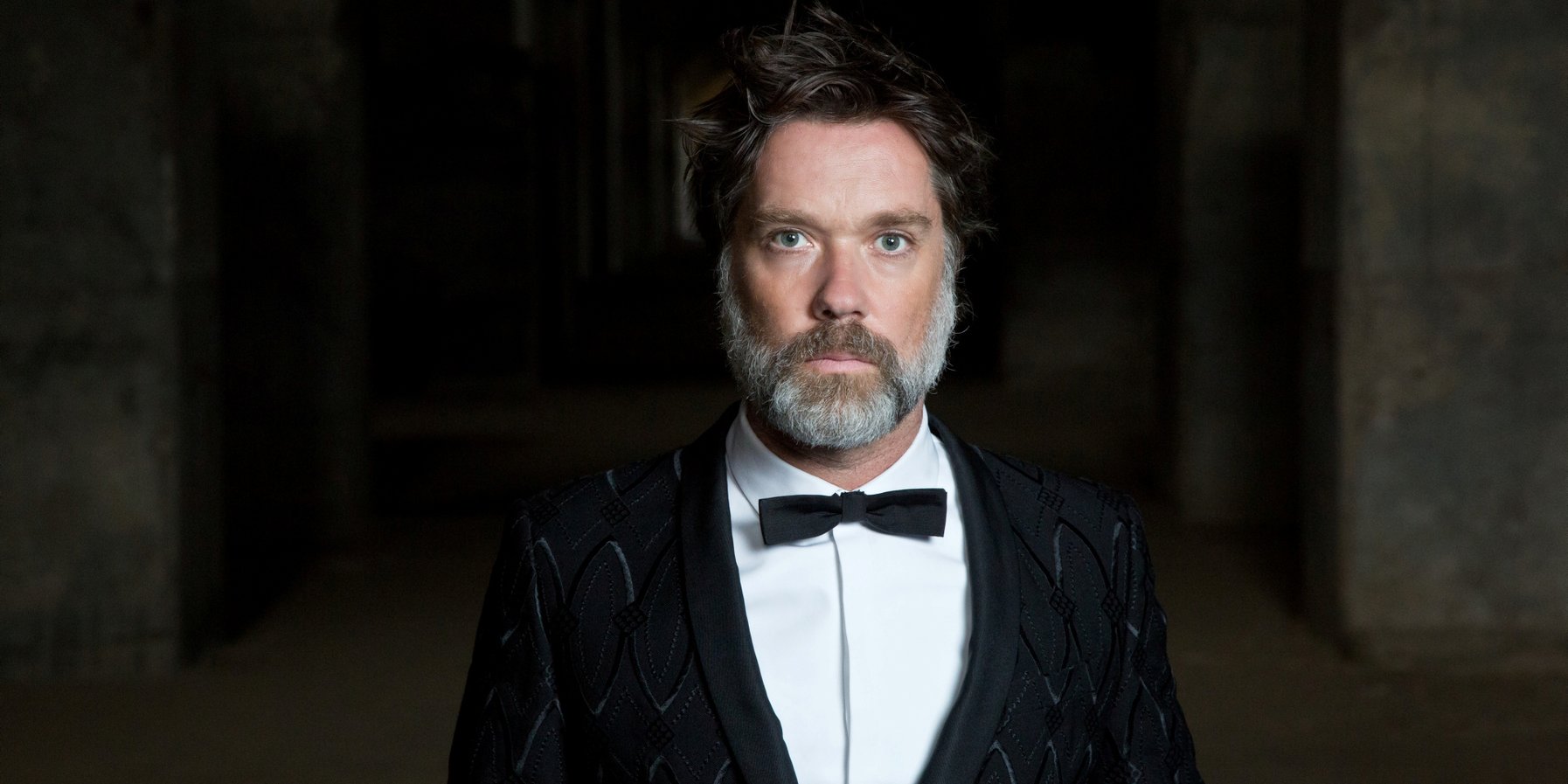
»My Requiem became something akin to the death of the American dream«
In your requiem, you interrupt the traditional text of the Latin funeral mass with passages from Lord Byron’s poem »Darkness«. Benjamin Britten did something similar in his »War Requiem«. What was your intention here?
Britten did indeed influence me. On the day Putin invaded Ukraine, I was listening to excerpts from it. I was somehow affected by this strange coincidence. But there is another reason: I am not a religious person. So I didn’t want it to be a purely religious work; I wanted a secular element that also spoke more about the environmental catastrophe we all find ourselves in.
Unlike Britten, you chose not to have the poem sung in the music – why is that?
It’s much easier to set Latin to music than to speak it. You just have to listen carefully, and then it almost comes naturally. Singing in English is not so easy. That’s why I decided to have Byron’s verses recited. It adds another dimension to the composition. It’s also a good way to promote the piece when you have Meryl Streep perform the narration, as she did at the premiere, or Isabelle Huppert in Hamburg. But I didn’t plan it that way. All the elements came together quite naturally, which is an important aspect of creativity: you have to just let things happen.
-
Lord Byron: »Darkness«
Darkness
Lord Byron (George Gordon)
I had a dream, which was not all a dream.
The bright sun was extinguish'd, and the stars
Did wander darkling in the eternal space,
Rayless, and pathless, and the icy earth
Swung blind and blackening in the moonless air;
Morn came and went – and came, and brought no day,
And men forgot their passions in the dread
Of this their desolation; and all hearts
Were chill'd into a selfish prayer for light:
And they did live by watchfires – and the thrones,
The palaces of crowned kings – the huts,
The habitations of all things which dwell,
Were burnt for beacons; cities were consum'd,
And men were gather'd round their blazing homes
To look once more into each other's face;
Happy were those who dwelt within the eye
Of the volcanos, and their mountain-torch:
A fearful hope was all the world contain'd;
Forests were set on fire – but hour by hour
They fell and faded – and the crackling trunks
Extinguish'd with a crash – and all was black.
The brows of men by the despairing light
Wore an unearthly aspect, as by fits
The flashes fell upon them; some lay down
And hid their eyes and wept; and some did rest
Their chins upon their clenched hands, and smil'd;
And others hurried to and fro, and fed
Their funeral piles with fuel, and look'd up
With mad disquietude on the dull sky,
The pall of a past world; and then again
With curses cast them down upon the dust,
And gnash'd their teeth and howl'd: the wild birds shriek'd
And, terrified, did flutter on the ground,
And flap their useless wings; the wildest brutes
Came tame and tremulous; and vipers crawl'd
And twin'd themselves among the multitude,
Hissing, but stingless – they were slain for food.
And War, which for a moment was no more,
Did glut himself again: a meal was bought
With blood, and each sate sullenly apart
Gorging himself in gloom: no love was left;
All earth was but one thought – and that was death
Immediate and inglorious; and the pang
Of famine fed upon all entrails – men
Died, and their bones were tombless as their flesh;
The meagre by the meagre were devour'd,
Even dogs assail'd their masters, all save one,
And he was faithful to a corse, and kept
The birds and beasts and famish'd men at bay,
Till hunger clung them, or the dropping dead
Lur'd their lank jaws; himself sought out no food,
But with a piteous and perpetual moan,
And a quick desolate cry, licking the hand
Which answer'd not with a caress – he died.
The crowd was famish'd by degrees; but two
Of an enormous city did survive,
And they were enemies: they met beside
The dying embers of an altar-place
Where had been heap'd a mass of holy things
For an unholy usage; they rak'd up,
And shivering scrap'd with their cold skeleton hands
The feeble ashes, and their feeble breath
Blew for a little life, and made a flame
Which was a mockery; then they lifted up
Their eyes as it grew lighter, and beheld
Each other's aspects – saw, and shriek'd, and died –
Even of their mutual hideousness they died,
Unknowing who he was upon whose brow
Famine had written Fiend. The world was void,
The populous and the powerful was a lump,
Seasonless, herbless, treeless, manless, lifeless –
A lump of death – a chaos of hard clay.
The rivers, lakes and ocean all stood still,
And nothing stirr'd within their silent depths;
Ships sailorless lay rotting on the sea,
And their masts fell down piecemeal: as they dropp'd
They slept on the abyss without a surge –
The waves were dead; the tides were in their grave,
The moon, their mistress, had expir'd before;
The winds were wither'd in the stagnant air,
And the clouds perish'd; Darkness had no need
Of aid from them – She was the Universe.(https://www.poetryfoundation.org)
The work is dedicated to your great role model Giuseppe Verdi, among others. Where can we hear that particularly clearly?
The beginning was important to me because I love the beginning of Verdi’s Requiem. It immediately transports us into that atmosphere; you are instantly captivated. I tried to achieve that too – to really grab people’s attention straight away. I also wanted to at least come close to the intensity of his »Dies irae«. I didn’t necessarily succeed, but I would say it’s a good attempt.
Were there other composers who influenced you?
I am totally influenced by Strauss. I also love Janáček and Messiaen. You can actually hear a little bit of Messiaen here and there in the Requiem. There’s also quite a bit of Berlioz in there. A lot of great composers have left their mark on me, including Schubert too.
Would you say your own style as a composer has changed over the years, from your first opera to »Dream Requiem«?
I don’t think my style has changed. I’m still the same person, I believe one hundred percent in the big melody. That’s the one element I think is missing in modern classical music. I don’t mean just any melody, but something like the »Méditation« from Massenet’s »Thaïs«, a melody that makes everything around it fade away into the background. That used to be the norm for composers, but these days it has become rare.
As a singer-songwriter, you go on to perform your own music. What is it like for you with a work like »Dream Requiem«, which you at some point have to hand over to others who are then responsible for it?
I remember the first orchestra rehearsal before the premiere in Paris with Mikko Franck. That was the first time I heard the Requiem live with an orchestra. Then Meryl Streep spontaneously joined us and held my hand the whole time. I just thought to myself: I’m hearing my work for the first time, and Meryl Streep is sitting next to me – this is crazy! At that moment, I was totally relieved, which wasn’t always the case. When my first opera premiered, I dressed up as Verdi – and ended up feeling pretty ridiculous. I was just nervous and insecure; it was a nightmare. With the Requiem it was completely different. There were moments when I was honestly overwhelmed and moved.
But you don’t want to give up your career as a singer-songwriter and work exclusively as a classical composer?
Not yet. But if, for some reason, I can’t sing anymore at some point, I have a plan B.
This interview appears (in German) in Elbphilharmonie Magazin (Issue 3/25)
- Elbphilharmonie Großer Saal
Rufus Wainwright: Dream Requiem
Symphoniker Hamburg / Carl-Philipp-Emanuel-Bach-Chor Hamburg / Isabelle Huppert and others – Elbphilharmonie Summer / Kampnagel International Summer Festival
Past Concert - Elbphilharmonie Großer Saal
Rufus Wainwright: Dream Requiem
Symphoniker Hamburg / Carl-Philipp-Emanuel-Bach-Chor Hamburg / Isabelle Huppert and others – Elbphilharmonie Summer / Kampnagel International Summer Festival
Past Concert
